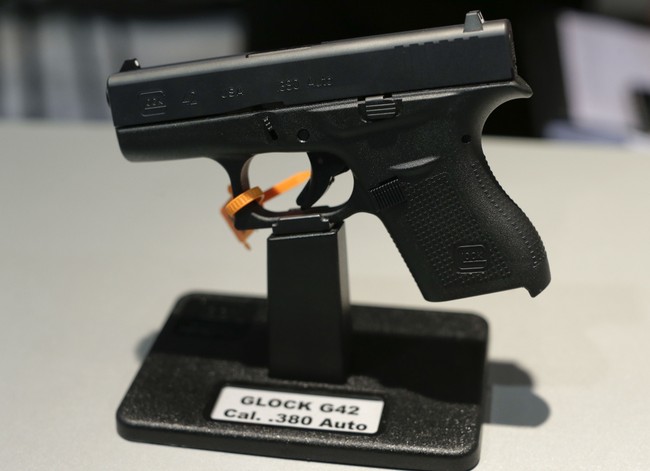I look at the text of the Second Amendment, and it clearly says that “the right of the people to keep and bear arms shall not be infringed.”
It’s right there in black and white.
And yet, it seems a lot of people don’t seem to get that. Yeah, that’s not the totality of the Amendment, but grammatically, that prefatory clause doesn’t change anything about the whole “shall not be infringed” thing.
Unfortunately, it seems the Sixth Circuit disagrees with me.
Bridges argued the ban is unconstitutional under N.Y. State Rifle & Pistol Ass’n v. Bruen, in which the US Supreme Court held that firearm restrictions must be analogous to historical regulations in the US.
Appeals courts across the country have been hit with a wave of Second Amendment challenges to various federal and state gun laws in the wake of Bruen and last year’s high court ruling United States v. Rahimi.
Pre-Bruen, the Sixth Circuit in Hamblen v. United States held that the Second Amendment “categorically does not protect” carrying unregistered machine guns for personal use, Judge Richard Allen Griffin wrote Thursday.
The Hamblen court applied the Supreme Court’s 2008 ruling in District of Columbia v. Heller. Although Hamblen didn’t conduct a review of the text or history of firearm regulations, “it did not have to—it instead relied entirely on Heller’s clear statements, rooted in historical analysis, that applied to machineguns.” Bruen “did nothing to displace those aspects of Heller on which Hamblen relied,” Griffin said.
Even if Hamblen doesn’t control this case, Bridges’ constitutional challenge still fails, the court said.
Heller identified the historical tradition of banning dangerous and unusual weapons. And “regardless of whether we measure dangerousness by the weapon itself or the manner of possession, both were dangerous here,” Griffin wrote.
Except I looked at the Heller decision, and the phrase “machine gun” doesn’t appear anywhere. In fact, the word “machine” doesn’t exist in the text by itself, so any variation of it is lacking.
That means Heller didn’t actually provide any actual statement on the validity of machine gun bans.
What Heller does talk about are “dangerous and unusual” weapons and how it’s acceptable to restrict those firearms via a ban, but then the onus falls on the Sixth Circuit to illustrate that full-auto firearms are both dangerous and unusual. It has to meet both criteria, not just one.
There are nearly 750,000 registered machine guns in the US. While it’s unknown just what percentage of them are in private hands versus those belonging to law enforcement–why law enforcement’s guns would be in this count makes no sense to me, though–the truth is that there are still a lot of them out there.
Is this enough to make them count as unusual? Well, that remains to be seen.
Further, we have to consider that it’s kind of a BS idea anyway, considering that the guns have been banned since well before Heller, meaning that they might be legitimately popular today had the 1986 ban not happened. It seems kind of asinine to use the ban’s results to justify the ban when it comes to constitutionally protected rights. “These aren’t common enough, so the ban is constitutional, even if the unconstitutional ban is why they’re not common enough.”
It’s insane.
Still, there’s zero chance of this one not moving up the judicial pipeline. While the plaintiff isn’t exactly someone anyone wants to rally behind, the truth is that the ban isn’t right, and Bruen most definitely applies, which means a history, text, and tradition test that the judge made pretty clear he wasn’t interested in examining.
Editor’s Note: Unelected federal judges are hijacking our Second Amendment rights and turning them into privileges.
Help us expose out-of-control judges dead set on halting the restoration and protection of those rights. Join Bearing Arms VIP and use promo code FIGHT to get 60% off your membership.
Read the full article here





